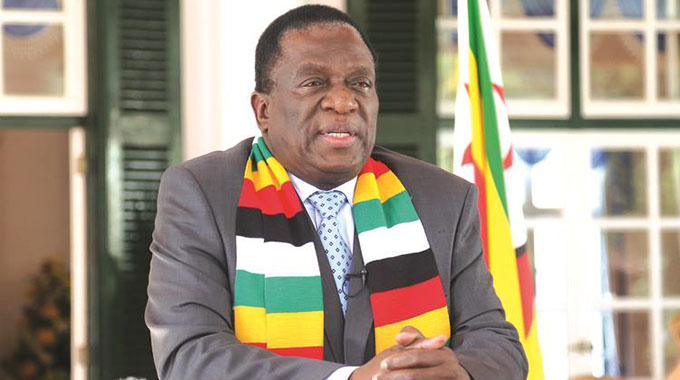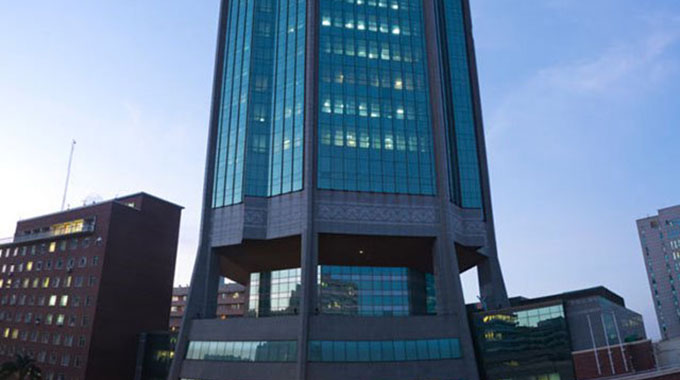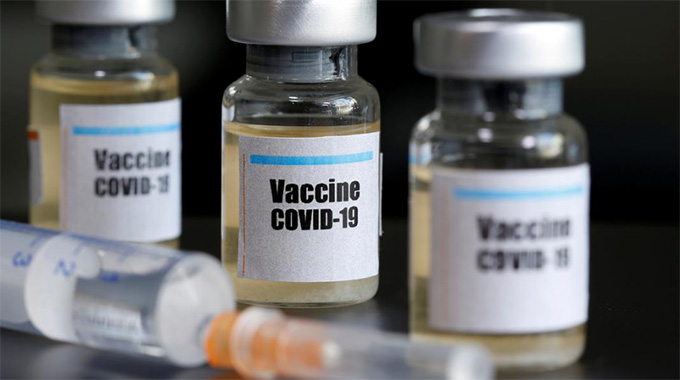Fighting graft remains a serious, complex challenge — President

VICE PRESIDENT, Gen.(Rtd). CGDN Chiwenga,
Vice President, Colonel (Rtd) KCD Mohadi,
Chairperson of the Zimbabwe Anti-Corruption Commission, Justice L. Matanda –Moyo,
Ladies and Gentlemen,
Fellow Zimbabweans,
It is my privilege to address the nation as we mark this year’s Africa Anti-Corruption Day.
Today we join other countries on our continent which are signatories to the African Union Convention on Preventing and Combating Corruption.
This is an important continental instrument outlining comprehensive standards, measures and rules to strengthen the practices, governance and regulatory framework to effectively fight corruption.
Zimbabwe subscribes to the African Union Aspiration for Agenda 2063, in particular Aspiration 3 which speaks of an Africa with good governance, democracy and respect for human rights, justice and rule of law.
Our country has also signed and domesticated other SADC and UN legal instruments against the scourge of corruption.
Moreover, we honour our various reporting obligations, on this matter.
Corruption is one of the continent’s greatest threats with negative and corrosive effects which hamper and reverse economic development, progress and stability.
Its negative impact cannot be downplayed.
Similarly, the fight against corruption remains a serious and complex challenge. Networks of corruption are becoming more and more sophisticated, permeating all sections of our society.
The need to build strong and robust institutions to ensure that all our assets and natural resources benefit the majority rather than the pockets of a few, remains paramount and urgent.
At the advent of the Second Republic, and upon my assumption of the Office of President, my Government prioritised the fight against corruption and declared Zero Tolerance to this vice.
To this end, we continue evaluating progress in fighting corruption and have made several changes to legislation and adopted best practices.
Specifically, the Zimbabwe Anti-Corruption Commission was re-constituted and capacitated to better deliver on its mandate as outlined in our National Constitution.
In addition, we established:
(i) Special Anti-Corruption Courts;
(ii) Established a new Special Anti-Corruption Unit within my Office;
(iii) Enacted the public Entities Corporate Governance Act; and
(iv) Required Cabinet members to declare their assets.
The retraining and re-orientation of personnel involved in the fight against corruption is ongoing.
Enactment of the Independent Complains Mechanism as outlined in Section 210 of our National Constitution must be expedited.
There is ample evidence of my administration’s resolve to crack down on corruption and to improve work practices across the public sector towards enhancing accountability and transparency.
To complement these efforts, an active, involved and empowered citizenry, with the appropriate values and practices which are averse to corruption, is of paramount importance.
Furthermore, I challenge the private sector, civil society, political parties, churches and other socio-economic groups to cultivate integrity and high ethical standards in the execution of their various functions.
Members of the criminal justice system and those in institutions tasked to fight corruption must improve on the investigation into, and prosecution of, corruption cases.
They must be above reproach and must ensure that all cases of corruption within their rank and file are thoroughly investigated, with corrupt officials punished.
The culture of long, drawn-out prosecutions and the “catch and release syndrome” must come to an end. The arrest and successful prosecution of corrupt “big and small fish” alike, must be the new normal.
Ladies and Gentlemen,
As citizens, rest assured and be emboldened by the political will demonstrated by my Government in the fight against corruption.
It is against this backdrop that I take the opportunity of this commemoration to launch the National Anti-Corruption Strategy for 2020-2024.
This strategy is a roadmap in the fight against corruption in Zimbabwe as we accelerate our quest to achieve Vision 2030.
The implementation of the strategy must be robust and responsive to changes and new realities that may emerge, and must build a tradition of integrity, honesty and hard work.
I note the involvement of the public and private sectors, Civil Society Organisations, trade and industry, media and professional societies, among others, in the development of this Anti-Corruption Strategy.
This is in keeping with Article 5 of the United Nations Convention against corruption. I urge us to continue with this unity of purpose, and to rid ourselves of “them and us” mentality.
The perception that corruption only occurs in the public sector will only slow us down in fighting corruption in other sectors of our economy.
As we go forward, the anti-corruption fight must be anchored at the community level, and must deal with both sides of corrupt practices, that is the “givers” and the “receivers”.
I commend media practitioners for the role they continue to play in the fight against corruption, and urge them to foster a culture of integrity, through trustworthy, fair, frank and honest communication to citizens.
Meanwhile, I call on Parliament to expedite the development of legislation that protects whistle-blowers.
Ladies and Gentlemen,
The National Anti-Corruption Strategy is for every Zimbabwean citizen.
I am confident that it will go a long way in combating corruption and in improving transparency and accountability.
In conclusion, let me reassure the nation that my Government will continue to weed out and eradicate corruption. No one is above the law.
With these remarks, it is now my singular honour and privilege to officially launch the National Anti-Corruption Strategy.
God bless you.
God bless Zimbabwe.









Comments